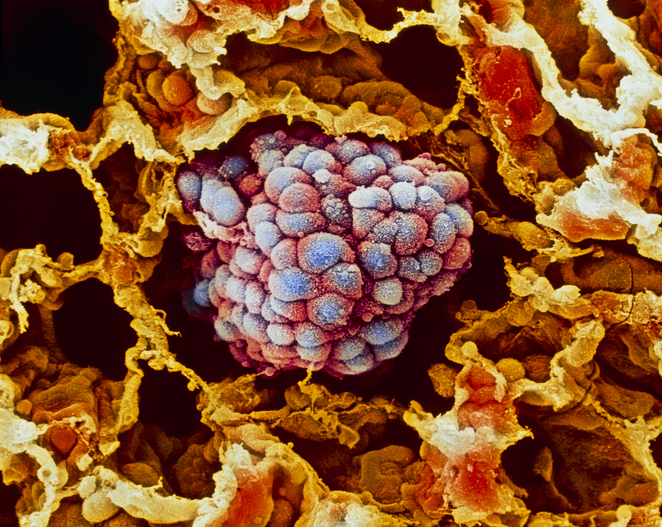
New research published today from investigators at the University of Texas MD Anderson Cancer Center shows that non-small cell lung cancer (NSCLC) outcomes were significantly improved by a regimen of pre-surgical immunotherapy plus chemotherapy followed by post-surgical immunotherapy. The results of the Phase III trial, published today in the New England Journal of Medicine, showed patients receiving this regimen improved event-free survival (EFS) and pathologic complete response (pCR) rates compared to chemotherapy alone for patients.
The AEGEAN trial evaluated the FDA-approved immunotherapy durvalumab (Imfinzi) given perioperatively. The Phase III trial was a randomized, double-blind, placebo-controlled study to evaluate the benefits of perioperative durvalumab added to platinum-based chemotherapy in adults with untreated stage IIA-IIIB NSCLC. A total of 802 patients were randomized 1:1 into each arm. The study’s primary endpoints were pCR, assessed by a central lab, and EFS using a blinded independent central review.
In the trial, one group of patients received pre-surgical durvalumab and platinum-based chemotherapy followed by post-surgical durvalumab. Other patients received pre-surgical placebo and chemotherapy followed by post-surgical placebo. Durvalumab is an immune checkpoint inhibitor targeting PD-L1 that has previously been approved for treating specific patients with biliary tract cancer, liver cancer, small-cell lung cancer, and NSCLC.
The AEGEAN trial is the first to study the efficacy of perioperative immunotherapy in patients with resectable NSCLC to report positive outcomes, providing evidence in support of both neoadjuvant and adjuvant immunotherapy for these patients.
“Our goal is to increase cures for lung cancer. Throughout decades of research with adjuvant and neoadjuvant chemotherapy, we only succeeded in increasing cures by around 5%,” said principal investigator John Heymach, MD, PhD, chair of Thoracic/Head & Neck Medical Oncology at MD Anderson. “This one study alone has the potential to increase that percentage significantly, and we look forward to many more improvements going forward.”
The study demonstrated a noteworthy improvement in pCR. Patients receiving perioperative durvalumab had a pCR of 17.2%, compared to just 4.3% of those receiving chemotherapy-alone. At the first interim analysis of EFS, with a median follow-up of 11.7 months, the median EFS was 25.9 months in the placebo arm, but it had not yet been reached in the durvalumab arm.
These results equate to a 32% lower risk of disease recurrence, progression, or death in the immunotherapy-based treatment group, compared to those receiving chemotherapy alone. Notably, four times as many patients treated with perioperative durvalumab and chemotherapy achieved a pCR compared to those treated with chemotherapy alone.
Overall, the treatments were well tolerated, and side effects were consistent with previous studies. The researchers observed maximum grade 3–4 any cause adverse events in 42.4% and 43.2% of patients on the durvalumab and placebo arms, respectively.
The benefits in both pCR and EFS largely were consistent across predefined patient subgroups, and the trial continues assessment for long-term EFS as well as disease-free survival and overall survival outcomes.
“This study shows that a combination of neoadjuvant and adjuvant durvalumab offers benefit for patients and may have the potential to change standard-of-care for patients with resectable non-small cell lung cancer,” Heymach said. “Going forward, we face a series of questions about how to build more effective regimens without giving more treatment than is necessary.”













